| Coach | NA |
| Venue | Stadio Cino e Lillo Del Duca |
Ascoli Trivia
Ascoli predictions
Predictions for Ascoli: See upcoming and historic predictions for Ascoli below.
Disclaimer: Past performance does not guarantee future results. Betting involves risk; only wager what you can afford to lose. Always gamble responsibly.
Ascoli Opinions
 Who is the greatest Ascoli player of all time?
Who is the greatest Ascoli player of all time?
Ascoli latest transfers
| Date | Player | From | To | Price |
|---|---|---|---|---|
| 2023-08-21 | L. Šimić | Ascoli | Maccabi Haifa | € 800K |
| 2022-07-01 | A. Sabiri | Ascoli | Sampdoria | € 1M |
| 2018-07-01 | A. Favilli | Ascoli | Juventus | € 7.5M |
| 2017-07-04 | I. Lores | Pisa | Ascoli | € 500K |
| 2017-07-01 | A. Favilli | Livorno | Ascoli | € 3M |
| 2009-07-01 | G. Bellusci | Ascoli | Catania | € 3M |
Serie B standings
| Rank | Team | MP | W | D | L | GF | GA | GD | Pts |
|---|---|---|---|---|---|---|---|---|---|
| 1 |
 Parma
Parma
|
32 | 19 | 9 | 4 | 57 | 32 | 25 | 66 |
| 2 |
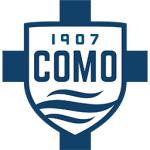 Como
Como
|
32 | 18 | 7 | 7 | 47 | 34 | 13 | 61 |
| 3 |
 Cremonese
Cremonese
|
32 | 17 | 8 | 7 | 42 | 26 | 16 | 59 |
| 4 |
 Venezia
Venezia
|
31 | 17 | 6 | 8 | 58 | 38 | 20 | 57 |
| 5 |
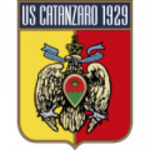 Catanzaro
Catanzaro
|
32 | 15 | 7 | 10 | 50 | 41 | 9 | 52 |
| 6 |
 Palermo
Palermo
|
32 | 14 | 8 | 10 | 57 | 47 | 10 | 50 |
| 7 |
 Brescia
Brescia
|
32 | 11 | 12 | 9 | 38 | 33 | 5 | 45 |
| 8 |
 Sampdoria
Sampdoria
|
32 | 13 | 7 | 12 | 47 | 47 | 0 | 44 |
| 9 |
 Cittadella
Cittadella
|
32 | 11 | 9 | 12 | 37 | 40 | -3 | 42 |
| 10 |
 Pisa
Pisa
|
32 | 10 | 10 | 12 | 41 | 44 | -3 | 40 |
| 11 |
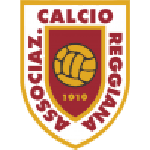 Reggiana
Reggiana
|
32 | 8 | 16 | 8 | 34 | 37 | -3 | 40 |
| 12 |
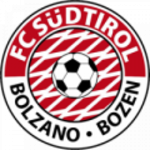 Sudtirol
Sudtirol
|
32 | 10 | 9 | 13 | 39 | 41 | -2 | 39 |
| 13 |
 Modena
Modena
|
32 | 8 | 15 | 9 | 36 | 41 | -5 | 39 |
| 14 |
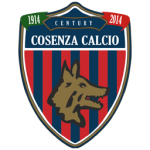 Cosenza
Cosenza
|
32 | 8 | 11 | 13 | 34 | 37 | -3 | 35 |
| 15 |
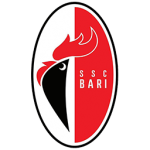 Bari
Bari
|
32 | 7 | 14 | 11 | 31 | 40 | -9 | 35 |
| 16 |
 Spezia
Spezia
|
32 | 7 | 14 | 11 | 31 | 44 | -13 | 35 |
| 17 |
 Ternana
Ternana
|
32 | 8 | 9 | 15 | 36 | 44 | -8 | 33 |
| 18 |
 Ascoli
Ascoli
|
31 | 7 | 10 | 14 | 33 | 38 | -5 | 31 |
| 19 |
 Feralpisalo
Feralpisalo
|
32 | 8 | 7 | 17 | 37 | 51 | -14 | 31 |
| 20 |
 Lecco
Lecco
|
32 | 5 | 8 | 19 | 30 | 60 | -30 | 23 |
About Ascoli
Ascoli Calcio 1898 FC, commonly known as Ascoli, is a professional Italian football club based in Ascoli Piceno, Marche. The club was founded in 1898 and is one of the oldest clubs in Italy. Ascoli has a rich history that spans over a century, marked by numerous ups and downs, including several promotions and relegations.
Ascoli's home ground is the Stadio Cino e Lillo Del Duca, named after two brothers who were former players and presidents of the club. The stadium, with a seating capacity of over 12,000, has been the club's fortress, hosting numerous memorable matches.
The club's colors are black and white, inspired by the traditional colors of the city of Ascoli Piceno. The team's emblem features a black and white eagle, the symbol of the city, adding a touch of local identity and pride to the club's image.
Ascoli's journey in Italian football has been a roller coaster ride. The club has spent most of its history in Serie B, the second tier of Italian football, but has also had spells in Serie A, the top tier. The club's golden era came in the late 1970s and early 1980s when they enjoyed a seven-year stint in Serie A. During this period, Ascoli produced some notable players who went on to represent Italy at the international level.
Despite financial difficulties and several relegations, Ascoli has always managed to bounce back, demonstrating the resilience and fighting spirit that are characteristic of the club. The team's never-say-die attitude has earned them a loyal fan base, known as the "Bianconeri", who passionately support the team through thick and thin.
Ascoli has also been renowned for its youth development, with its academy producing several players who have gone on to have successful careers in Italy and abroad. The club's commitment to nurturing young talent is a testament to its long-term vision and dedication to the sport.
Over the years, Ascoli has had a number of notable coaches who have left their mark on the club. One of the most significant is Carlo Mazzone, who guided the team to Serie A in the 1970s and is considered one of the club's greatest ever managers.
Ascoli's history is not just about football, but also about its deep-rooted connection with the local community. The club has always been a source of pride for the people of Ascoli Piceno, representing their city on the national stage. The club's ethos is deeply intertwined with the values of hard work, resilience, and community spirit that are characteristic of the city and its people.
Despite the challenges and obstacles, Ascoli continues to soldier on, driven by the passion and dedication of its players, staff, and fans. The club's story is a testament to the enduring appeal of football, a sport that brings people together and creates a sense of community and belonging.
In conclusion, Ascoli is more than just a football club. It is a symbol of the city of Ascoli Piceno, a beacon of hope for its people, and a testament to the enduring spirit of football.















